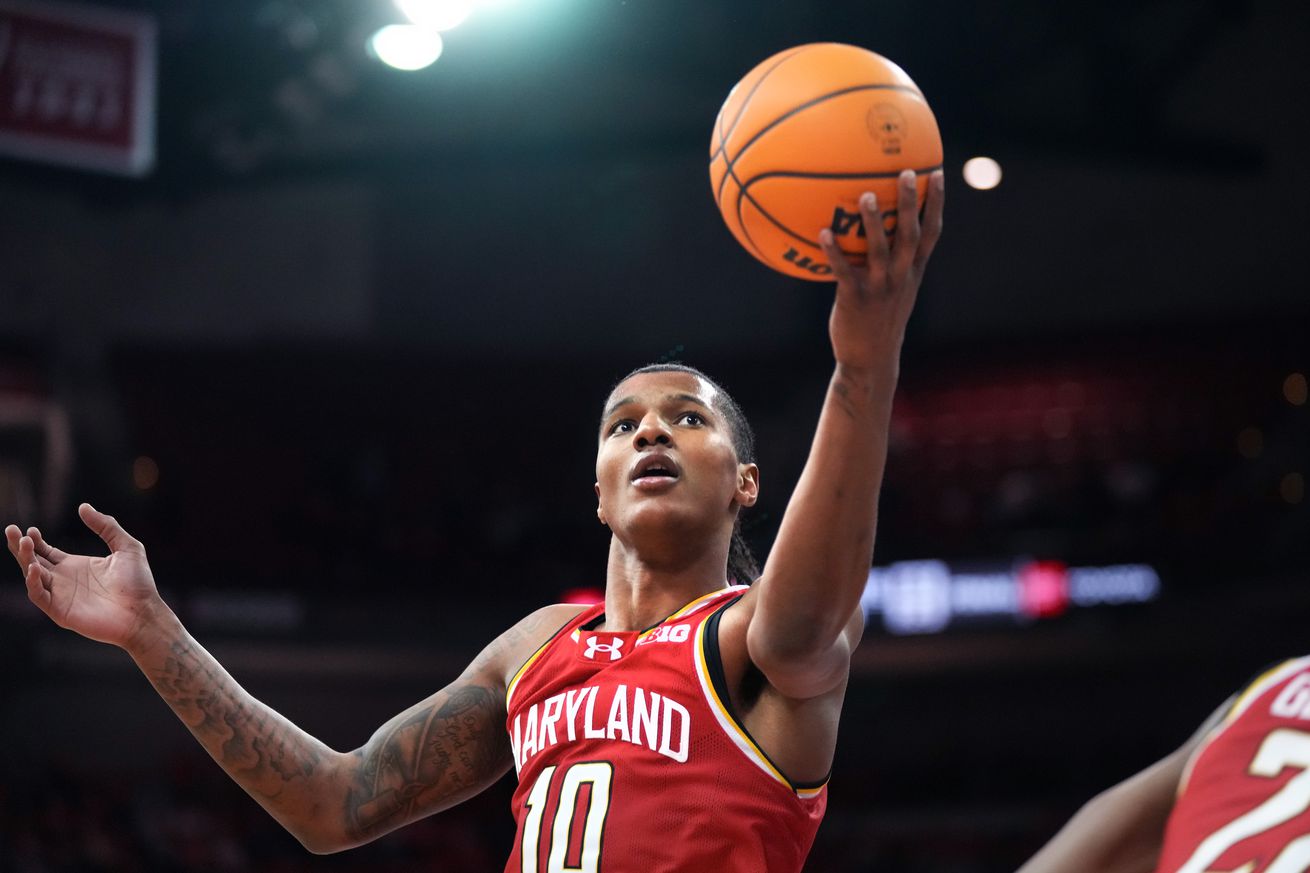
The Terps only brought back four players who consistently contributed last season.
With the departure of program centerpiece Jahmir Young and longtime starter Donta Scott, Maryland men’s basketball’s returning core is weaker than in years past.
But head coach Kevin Willard avoided another devastating loss with the return of Julian Reese, who was said to have seriously considered the transfer portal after a disappointing season in 2023-24, according to 247Sports.
Listed at 6-foot-9, Reese has established himself as one of the best players in the Big Ten and one of the best forwards in the country over the past two seasons. Reese, a senior, played and started in 32 games last year, averaging 13.7 points, 9.5 rebounds and 1.3 assists per game en route to an All-Big Ten honorable mention. He also posted 1.9 blocks and one steal per game.
After playing second fiddle to Young over the past two seasons, Reese will be the go-to guy on offense this year.
But he faces a unique challenge this season: sharing the frontcourt with five-star, 6-foot-10 freshman Derik Queen. Reese has not consistently played alongside a player taller than him during his time at Maryland, which could lead to some early growing pains.
“The biggest issue we’re having right now is transition defense,” Willard said of the pairing. “Neither one of them are used to sprinting back and playing the four man.”
But the positives Queen brings should outweigh any potential disadvantages. Queen has the ability to stretch the floor and find Reese around the rim. Opposing teams will be forced to put its power forward on either Queen or Reese, which should lead to easier points in the paint.
The only other returner expected to start alongside Reese is sophomore DeShawn Harris-Smith. The No. 27-ranked player in the class of 2023, according to 247Sports, Harris-Smith saw lofty expectations crumble in Big Ten play last year.
Against nonconference opponents, Harris-Smith averaged 8.1 points, 4.5 rebounds and 2.9 assists per game last season. But those numbers dipped to 6.6 points, 4.1 rebounds and 1.7 assists per game in conference play.
The main cause for concern with Harris-Smith was his shooting splits. He shot 36.8% from the field, 20.2% from three and 58% from the free throw line last season. But many are hopeful Harris-Smith’s shot took a turn for the better in the offseason.
“We really have worked on certain fundamentals with DeShawn,” Willard said. “He had a bad habit of moving his head back on his shot … so we’ve worked really hard with DeShawn on keeping his head still.”
“He’s shooting with more confidence now, as you can see, and they’re actually going in because he’s shooting with confidence,” transfer guard Jay Young said.
Despite the shooting struggles, Harris-Smith still started in 30 of the 33 games he played, averaging 29.5 minutes per game.
Listed at 6-foot-5 and 208 pounds, Harris-Smith has the defensive versatility, athletic profile and mindset needed to be great — he just needs to add a shot to his repertoire.
Jordan Geronimo started in 26 of his 31 games played last season, but with the addition of Ja’Kobi Gillespie, Selton Miguel and Rodney Rice from the transfer portal, Geronimo’s role is expected to decrease.
Last season, he averaged 5.4 points and 3.9 rebounds in 23.3 minutes per game, but his impact was truly felt on the defensive end, where he could comfortably guard virtually any player on the court and averaged 1.1 blocks and 0.9 steals per game.
With an influx of guards and wings in the offseason, Geronimo will primarily be slotted in as a power forward instead of a small forward this season, relieving both Reese and Queen when needed.
“I played the four all my career, so I kind of know what to do at the four spot,” Geronimo said.
Most of his looks will come from inside this year, as opposed to last season when Geronimo, who shot 17.4% from three, was forced to play on the perimeter.
Jahari Long is another name Maryland fans are familiar with, but Long suffered a serious knee injury in March and will likely spend most of the season recovering from it.
As for the other four returners — Chance Stephens, Braden Pierce, Lukas Sotell and Ben Murphy — none of them played many meaningful minutes, or at all.
Stephens is the most intriguing of the bunch. After averaging 6.0 points per game on 37.4% from three at Loyola Marymount, Stephens was brought in last year to provide shooting to a team that desperately needed it. But he suffered a season-ending knee injury before the campaign even started.
In a crowded backcourt, it will be hard for Stephens to carve out playing time, but his shooting ability is still an asset.
Willard brought in multiple talented transfers and an All-American freshman, but everything revolves around Reese this season.